- News
- Reviews
- Bikes
- Components
- Bar tape & grips
- Bottom brackets
- Brake & gear cables
- Brake & STI levers
- Brake pads & spares
- Brakes
- Cassettes & freewheels
- Chains
- Chainsets & chainrings
- Derailleurs - front
- Derailleurs - rear
- Forks
- Gear levers & shifters
- Groupsets
- Handlebars & extensions
- Headsets
- Hubs
- Inner tubes
- Pedals
- Quick releases & skewers
- Saddles
- Seatposts
- Stems
- Wheels
- Tyres
- Tubeless valves
- Accessories
- Accessories - misc
- Computer mounts
- Bags
- Bar ends
- Bike bags & cases
- Bottle cages
- Bottles
- Cameras
- Car racks
- Child seats
- Computers
- Glasses
- GPS units
- Helmets
- Lights - front
- Lights - rear
- Lights - sets
- Locks
- Mirrors
- Mudguards
- Racks
- Pumps & CO2 inflators
- Puncture kits
- Reflectives
- Smart watches
- Stands and racks
- Trailers
- Clothing
- Health, fitness and nutrition
- Tools and workshop
- Miscellaneous
- Buyers Guides
- Features
- Forum
- Recommends
- Podcast
news
Triathlon star who wants to win Tour de France by 2028 slams "amateurish" Olympic organisation after missing out on medal; Cycling silly season underway; Hope for active travel and proper cycle infrastructure?; Supermarket wars + more on the live blog
SUMMARY
No Live Blog item found.
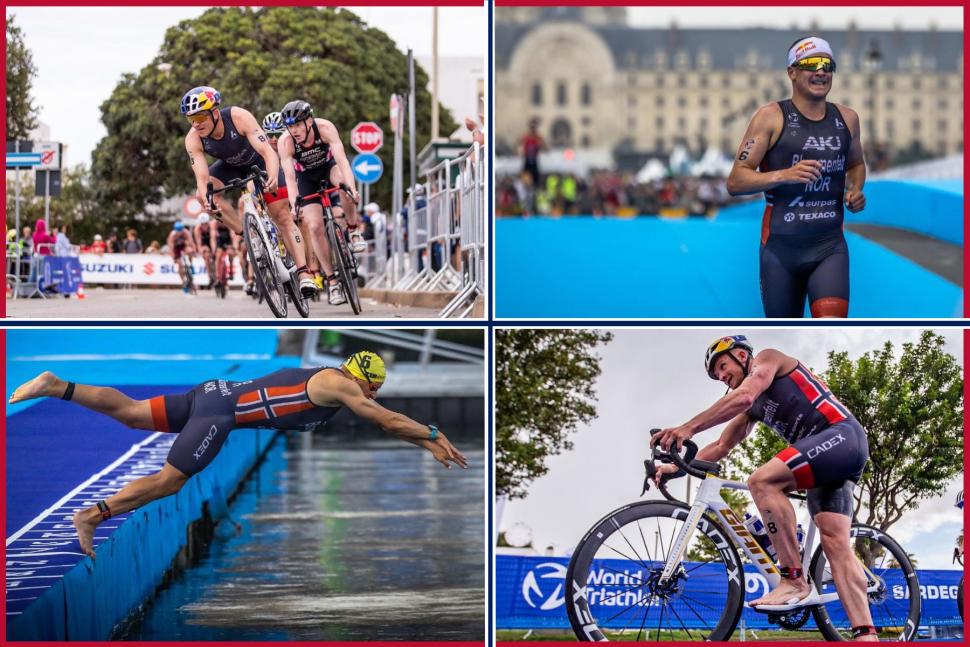 Kristian Blummenfelt, Norwegian triathlete (credit: Kristian Blummenfelt on Facebook)
Kristian Blummenfelt, Norwegian triathlete (credit: Kristian Blummenfelt on Facebook)01 August 2024, 08:03
Triathlon star who wants to win Tour de France by 2028 slams "amateurish" Olympic organisation after missing out on medal
Norwegian triathlon heavyweight Kristian Blummenfelt made headlines this week when the former Ironman champ and 2020 Olympic gold medal winner revealed his ambitious plan to win the Tour de France by 2028. Blummenfelt reportedly tested for the highest absolute VO2 max (as opposed to relative VO2 max, which factors in weight), ever recorded in history and is said to be joining UCI WorldTeam Jayco-AlUla to get his two-wheeled career underway.
He had the small matter of defending his Olympic crown yesterday, a task that did not go to plan, Great Britain's Alex Yee pulling off a stunning comeback victory as Blummenfelt finished a disappointing 12th. Afterwards, the soon-to-be pro cyclist was not happy and had a pop at the "amateurish" organisation of the event which was delayed by a day due to concerns about pollution levels in the River Seine.
He told the Discovery TV cameras: "That is not what we have worked for, I'm of course disappointed. I felt I got into a position where I could fight for a medal and victory, but I just didn't quite have the running legs I needed to keep up. I felt I had good control on the bike, and was excited about how my legs would be when I started running, but it was heavy.
"It is the same for everyone, but it is of course amateurish on the part of the organiser..."
We should point out he didn't claim the "amateurish" organising stopped him winning a medal and he was quick to praise GB's Yee and silver medal winner Hayden Wilde for their "aggressive" run.
"I felt ready this morning, that was probably not why," he said. "They go hard from the start. It was certainly expected that they go out quite aggressively in the first two or three kilometres to stretch out the field. It is probably what Alex and Hayden regretted after Tokyo, that they did not run more aggressively."
The "amateurish" aspect of the organisation was how the decision to postpone the races, initially scheduled for Tuesday but delayed until Wednesday due to the level of E. coli bacteria in the Seine where the swimming leg took place, was made and communicated to athletes (who have presumably spent months preparing to peak perfectly for one day). Early yesterday morning the organisers said they'd been given the green light and the races went ahead a day late, no doubt a frustrating exercise for many involved.
Norwegian teammate Vetle Bergsvik Thorn admitted it had "not been optimal", the athletes having to wake up early on both days to check if there was a competition to race. Sports director Arlid Tveiten said it was "unprofessional" to not have a back-up plan for if the Seine was not able to be used, but said with time they'd only remember how cool it was to race through central Paris.
"We think it is a bit unprofessional not to have a reserve arena, but at the same time we have to, so there is nowhere in the world where it is cooler to organise a triathlon. I think that's what we're going to remember when we get a little distance," he said.
Making (admittedly quite valid) complaints about dodgy race organisation after a disappointing result? You'll fit in just fine in pro cycling, Kristian...
01 August 2024, 14:58
A big day of gravel-related tech news as brand new SRAM gravel groupset announced (+ new stuff from Zipp)
Our pals at off-road.cc have been busy today, SRAM unveilling Red XPLR AXS, a 13-speed, 1x-only gravel groupset.
Aaron's had it for a while and has penned his thoughts here...
> SRAM Red XPLR AXS groupset review
Meanwhile, SRAM’s high-performance wheel sub-brand, Zipp, has developed two new models specifically for gravel riding. Find out more here...
01 August 2024, 14:18
The great pressure washer debate — is it okay to use a pressure washer on your bike?
Apologies for the sporadic blogging folks, plenty happening elsewhere today. Anyway, it would be remiss of me to not dive into the comments on this...
bikes: "I use a garden sprayer. Cheap and no need to plug it in to a power or water source. And it uses very little water, possibly less than using a bucket. A light mist and a brush go a long way."
Dunnoeither: "I've used gas station pressure washers on my commuter many many times and I am struggling to imagine how this could possibly harm any bike when done carefully. Just don't get too close (>3 metres) and avoid the bearings and other sensitive parts."
Jimthebikeguy.com: "No."
andystow: "I don't use one on my bearings, but I've used it to blast off the rims and tyres, mudguards, and the chain. I blow all the water out of the chain with compressed air before re-lubricating it. I can leave my pressure washer hooked up, and turn the power off to rinse sensitive areas with the same wand."
I'm going to give a shout-out to my personal favourite method, the water bottle 'pressure washer'. Dehydrate yourself by not finishing your bottles then spray the muck off before you wheel your bike back to wherever you store it. Gets the worst off, leaves you more time to do the drivetrain, but can give you a cracking headache from all those fluids you didn't touch... win, win, lose...
01 August 2024, 12:42
Almost half of British people can't afford to buy a bike – and a quarter say it would take at least six months to save for one, new research for Cycle to Work Day finds
01 August 2024, 10:28
Cofidis rider who bashed Look bikes following Tour de France disappointment moves to FDJ
A week on from this, and Guillaume Martin is off to FDJ...
01 August 2024, 10:12
Cycling supermarket wars: Carrefour vs Intermarché vs Lidl
Intermarché–Wanty responded to the news that stage six of this year's Vuelta will begin INSIDE a supermarket... no, really...
> Hold on, what? Stage six of this year’s Vuelta a España to start inside a Carrefour supermarket
Cool story but Intermarché supermarkets are best 😎 https://t.co/2C16rDDH4D pic.twitter.com/XSNGZhRed0
— Intermarché-Wanty (@IntermarcheW) July 31, 2024
Cue Lidl-Trek getting in on the act...
Cooler story but @lidl supermarkets are really where it’s at 🤠 https://t.co/PUj7ASwnfy pic.twitter.com/uWcTVbWb1p
— Lidl-Trek (@LidlTrek) August 1, 2024
01 August 2024, 10:04
REVIEW: Wheeltop EDS-TX Wireless Carbon Electronic Shifters and Derailleurs (road bike)
01 August 2024, 09:29
Cycling silly season underway
August 1 means pro cycling transfers can officially be announced. Two early big-name deals to flag. Ben O'Connor is joining Jayco AlUla (where he may soon be a teammate of a certain triathlon star) and Jhonatan Narváez has swapped Ineos for the UAE Team Emirates empire. These are deals which will begin on January 1 and naturally O'Connor's comes with the obligatory signing announcement vid courtesy of Jayco's social media team...
🖊️ 𝘽𝙚𝙣 𝙣𝙚𝙚𝙙𝙨 𝙖 𝙥𝙚𝙣! 🖊️
Let’s get this thing signed!
Welcome 👋🏼 @ben_oconnor95 🇦🇺 pic.twitter.com/HpjlRHmoTn
— GreenEDGE Cycling (@GreenEDGEteam) August 1, 2024
UAE were more understated, Narvaez (a dark horse for this weekend's Olympic road race) saying he expects to "take another step in the coming years", whether that means classics glory, a place in Pogi's imperious Grand Tour set-up, or both, remains to be seen.
01 August 2024, 09:35
Hope for active travel and proper cycle infrastructure?
Cycling journalist Carlton Reid and former active travel commissioner for the West Midlands Adam Tranter have been discussing our favourite topic: cycling infrastructure. Carlton's published a photo essay on the "nine-mile, butter smooth Polegate-to-Lewes cycle track", which was described by road.cc contributor Laura Laker as "quite possibly the best rural cycling and walking route in the country to date" in her new book 'Potholes and Pavements: A Bumpy Ride on Britain's National Cycle Network'. And looking at the photos it's hard to disagree...
It *can* be done. High quality, separated, A to B rural cycle tracks in the UK, that is. PHOTO ESSAY: https://t.co/AABFE3jSob HT @laura_laker pic.twitter.com/x2scB26ux4
— Carlton Reid (@carltonreid) July 31, 2024
Meanwhile, Tranter has been pondering active travel investment in a separate thread...
When we build bigger roads, we get more traffic. Congestion briefly gets better, then the same, then worse. £Billions is spent in the process.
Instead of dualling roads, what if we used the space for active travel instead? Here’s a thread on why it should happen.🧵 pic.twitter.com/SE7dny0Q07
— Adam Tranter (@adamtranter) July 31, 2024
Both well worth a browse this Thursday morning.
Dan is the road.cc news editor and joined in 2020 having previously written about nearly every other sport under the sun for the Express, and the weird and wonderful world of non-league football for The Non-League Paper. Dan has been at road.cc for four years and mainly writes news and tech articles as well as the occasional feature. He has hopefully kept you entertained on the live blog too.
Never fast enough to take things on the bike too seriously, when he's not working you'll find him exploring the south of England by two wheels at a leisurely weekend pace, or enjoying his favourite Scottish roads when visiting family. Sometimes he'll even load up the bags and ride up the whole way, he's a bit strange like that.
Latest Comments
- ErnieC 28 min 57 sec ago
or Team Bahrain ... selective outrage.
- newbankgyratory 1 hour 31 min ago
This website offers suitable data: https://www.automobiledimension.com/large-suv-4x4-cars.php
- newbankgyratory 2 hours 4 min ago
Perhaps park the goods in a US Customs Bonded warehouse and then import them out of there when the tariff nonsense settles down?...
- Dnnnnnn 2 sec ago
Good to see a road.cc review of what must be one of the UK's best-selling 'proper' road bikes....
- PRSboy 2 hours 59 min ago
Another thing ruined by the Americans
- Miller 4 hours 18 min ago
Nice to see WvA featuring in the finale.
- Miller 4 hours 20 min ago
I have known more than one elder statesman of the club die of a heart failure while out on a ride. Sometimes I feel that's about to happen to me,...
- Pub bike 4 hours 38 min ago
Via the "wireless active steering system".
- Hirsute 5 hours 2 min ago
137m is the farthest I have observed when quickly looking at the Garmin unit....
- pockstone 5 hours 19 min ago
Yours worked wonders, but if you insist, I'll hop to it...why the need for extra police? Did the fire brigade bottle it?

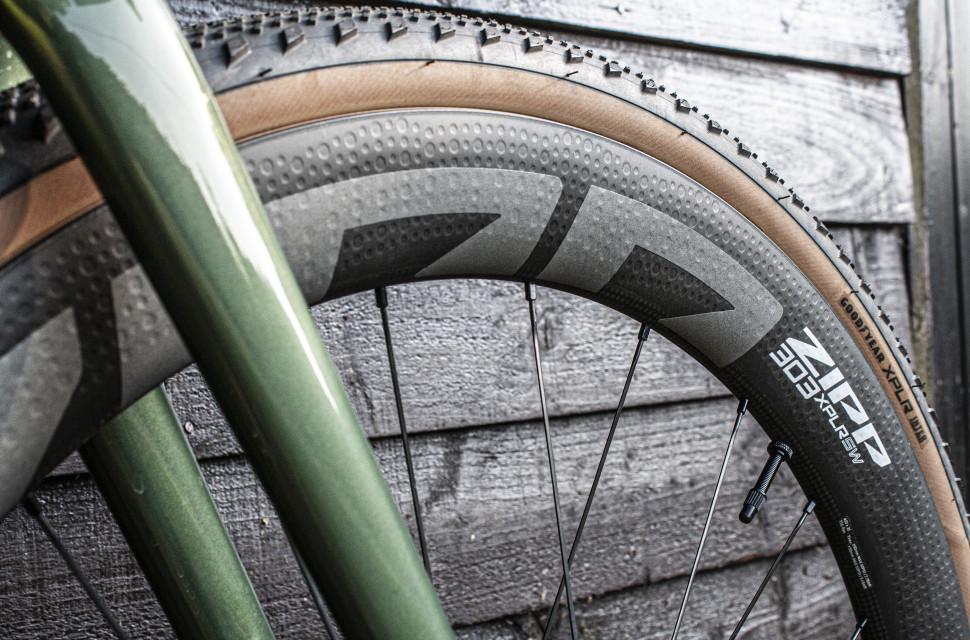
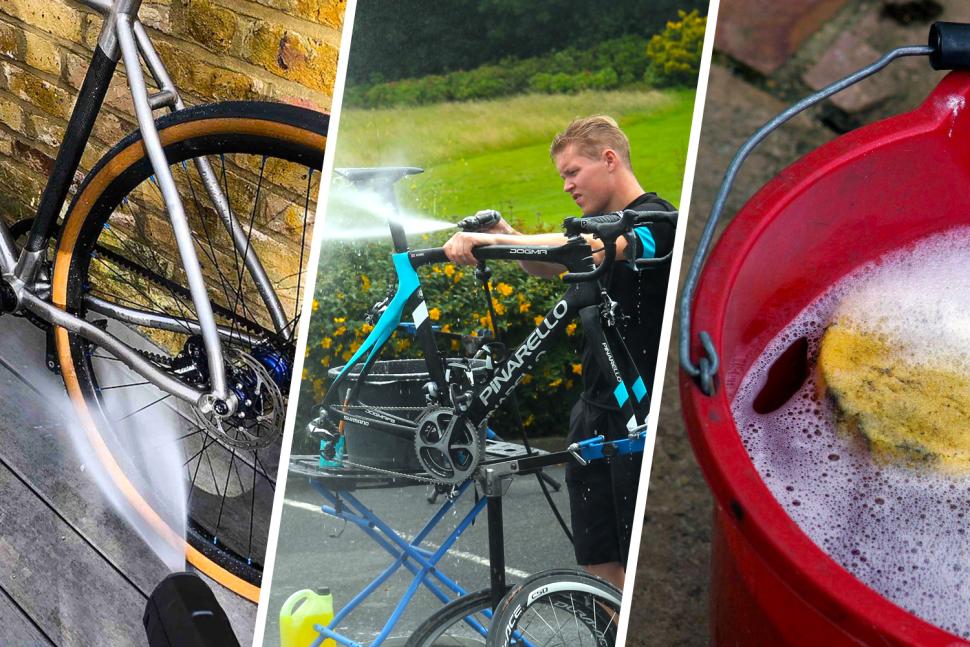
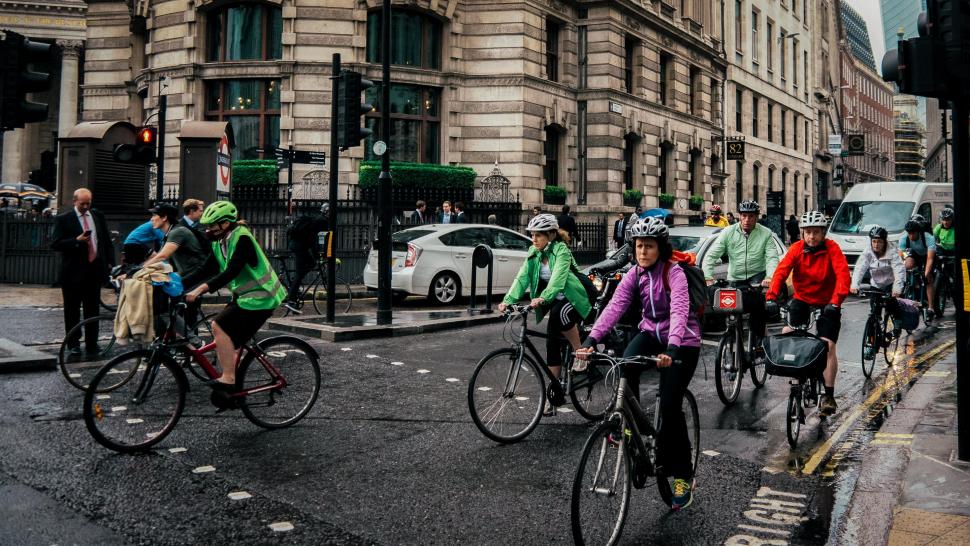
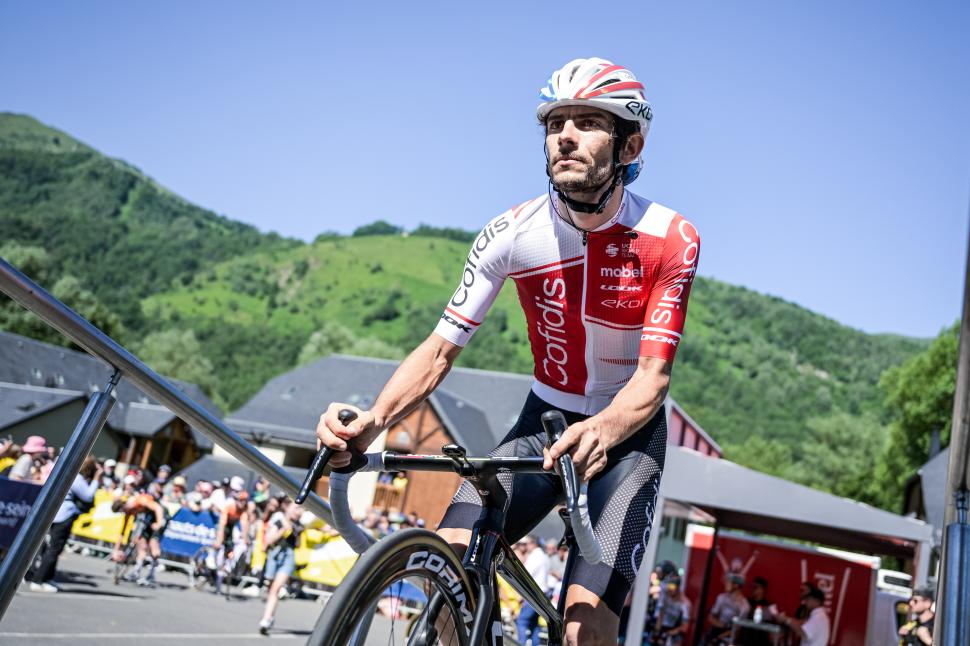
Add new comment
35 comments
Tomorrow's headline - "Local racer accused of E.Coli doping". Officials say it's a trickle-down effect from top level sports.
Hard to choose between E.Coli and Carbon Monoxide. Maybe the Olympic committee should start testing swimmers and triathletes for E.Coli rebreathing?
All the other riders were in the same situation and eleven of them finished ahead of him.
Maybe the winner had an unfair advantage and the water companies dumping effluent in the UK's rivers was a cunning plan all along...
To be fair, it does seem pretty amateurish. Basing an entire Olympic event on having cleaned up a historically unclean river with only days to spare with no alternative venue and even a suggestion to run the event with a key component missing, I would say, is quite amateurish.
I understand the desire to run the event as planned, and the Norwegian coach admitted that this will no doubt provide the abiding memories, but given the challenges involved in making the event safe, surely a back up plan would have made sense?
My understanding is it's not at all uncommon (and getting worse) in triathlon for the swim leg to be affected by poor water quality, and mostly it would just end up being cancelled and the race run as a duathlon, it not being practical to relocate or reschedule. The Olympics, being the Olympics, are unusual in having the clout to make alternative arrangements, and paradoxically it's the uncertainty that that's caused that's resulted in most of the complaints.
Pages